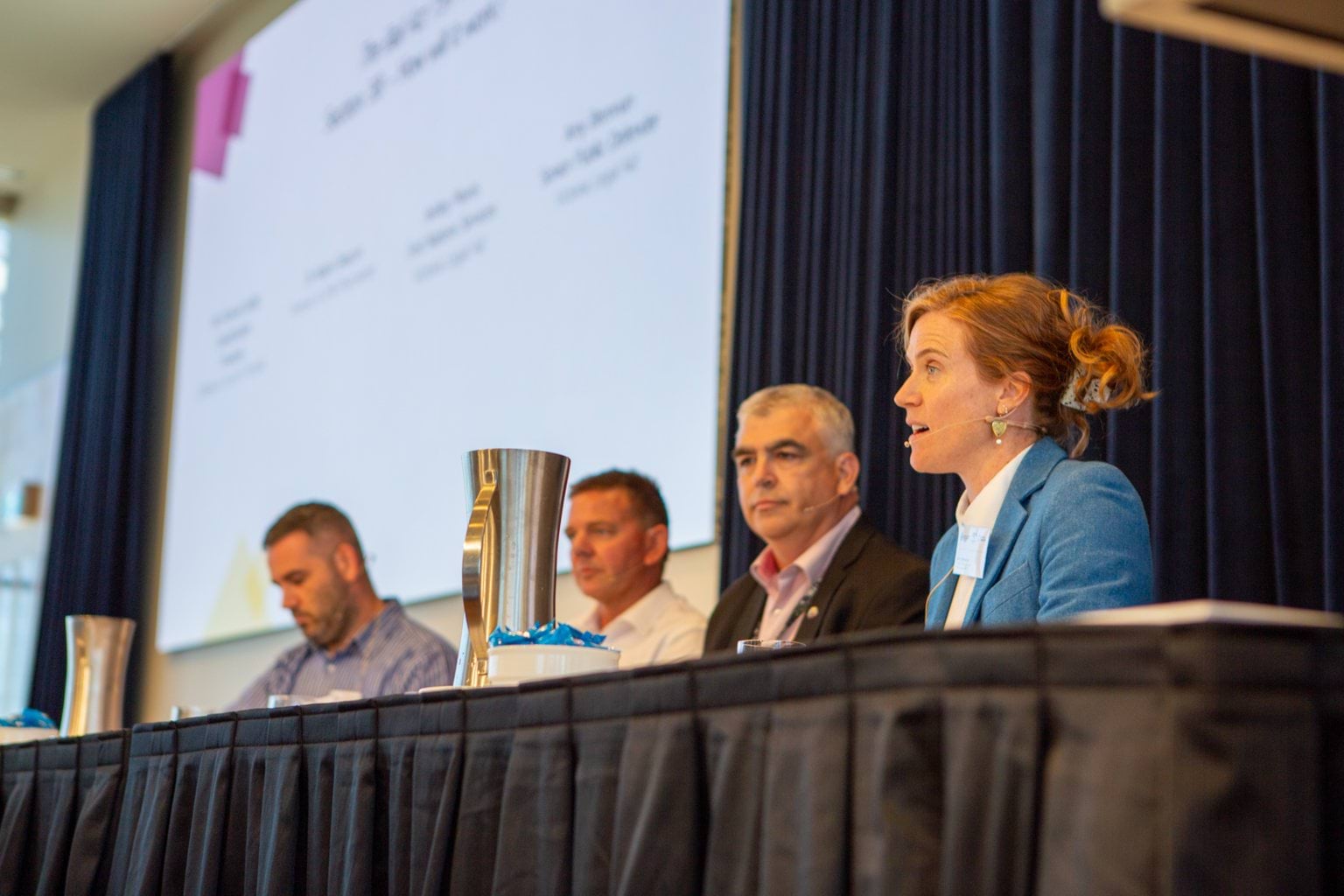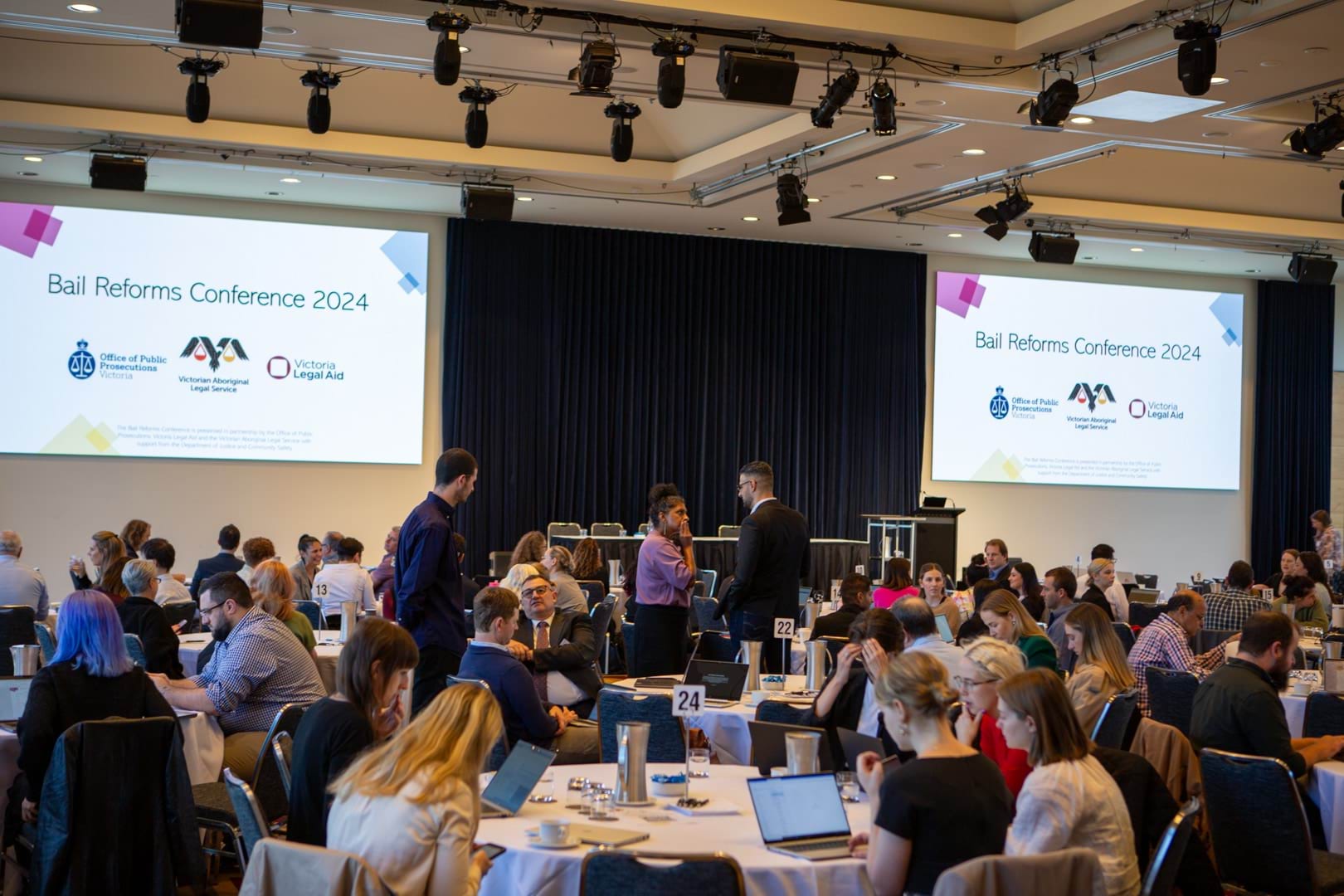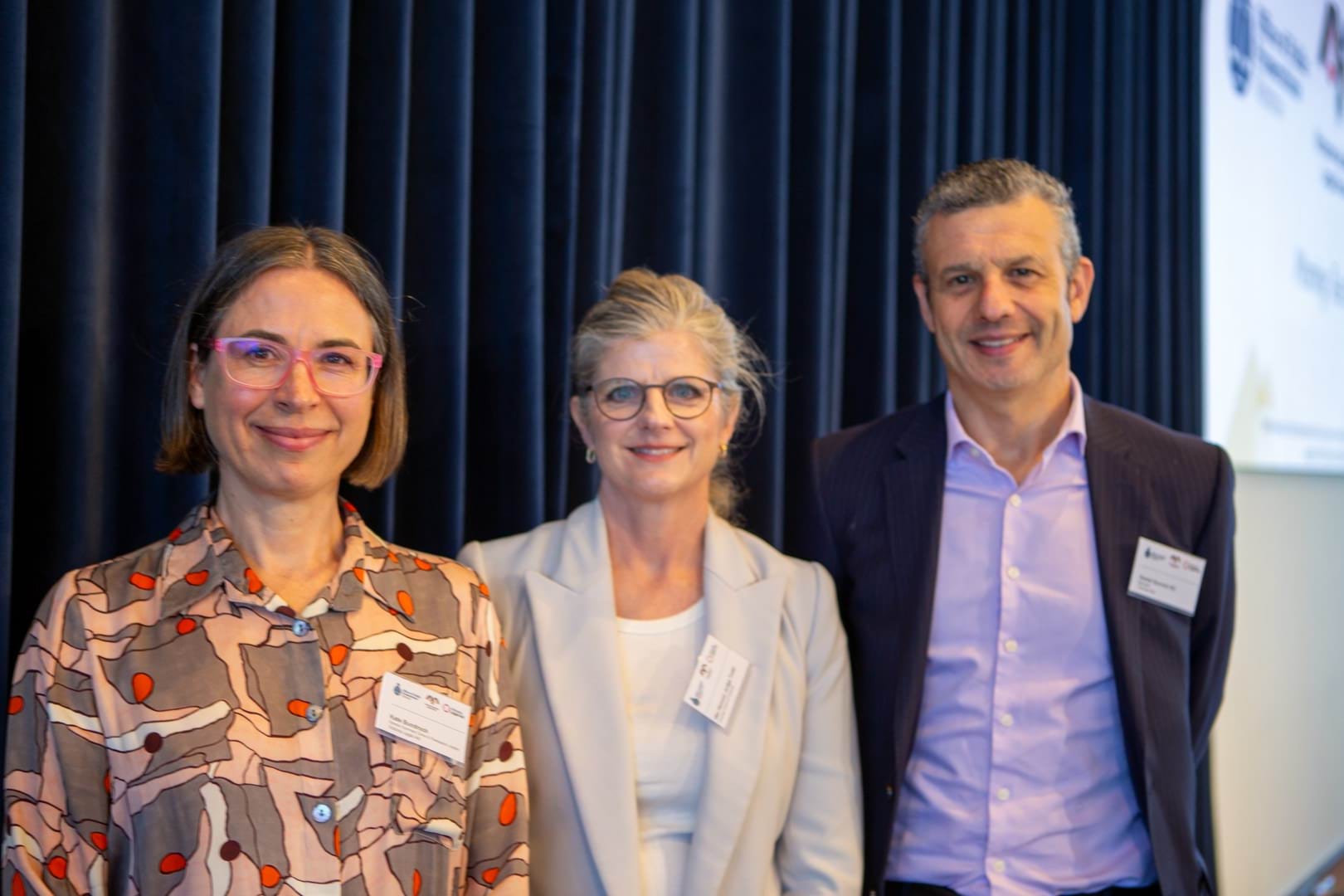- Published:
- Tuesday 2 April 2024 at 9:30 am

New bail laws given effect last month can only achieve their purpose to deliver better outcomes with the co-operation and understanding of all involved, including Aboriginal Community Controlled Organisations, courts, lawyers, prosecutors and bail justices.
Victorian Aboriginal Legal Service (VALS) CEO Nerita Waight told the Bail Reforms Conference that we must all work together for better bail decisions which reduce remand rates for Aboriginal people.
‘Aboriginal people in Victoria have been failed many times by the criminal legal system,’ she said.
‘Our people are strong and have led the way in advocacy for change.
‘We must now all work together to ensure that strength is recognised in implementing the new laws in a way that leads to better bail decisions.’
Note this story includes the name of a deceased First Nations person. Her name is used with the permission of her family.
Clarifying roles, responsibilities
The Bail Reforms Conference was a special education session to support understanding and education on the bail reforms that formally commenced on Monday 25 March 2024.
Presented in partnership by VALS, the Office of Public Prosecutions (OPP) and Victoria Legal Aid, with support from the Department of Justice and Community Safety, more than 220 delegates attended in-person and almost 500 online.
The registration to receive a copy of the recording and material has so far exceeded 890 people.
Attendees included representatives from community legal centres, private practitioners, Victoria Police, the Victorian Government Solicitor’s Office, the Judicial College of Victoria, Victorian Bar and the Victorian Legal Services Board + Commissioner.
In her pre-recorded address to the delegates, Nerita paid tribute to the family of Veronica Nelson for their hard-fought advocacy which resulted in the latest changes to the Act.
Ms Nelson was a proud Gunditjmara, Dja Dja Wurrung, Wiradjuri and Yorta Yorta woman who died in custody in 2020.
Coroner Simon McGregor found her death was preventable.
Making bail safer and fairer
The latest bail reforms passed the Victorian parliament in October to make laws fairer and reduce the disproportionate impact felt by women, children and Aboriginal peoples.
The reforms include:
- removing most of the ‘double uplift’ impact so that people will not face the more onerous exceptional circumstances test for bail when they are before court due to repeated minor offending, like shoplifting
- amending the unacceptable risk test so that rather than focusing on the risk of any offending, the focus is on the risk of endangering the safety and welfare of any other person
- mandating that bail decision-makers consider a person’s Aboriginality and the context of historical and ongoing discriminatory practices that result in Aboriginal peoples being over-represented in the criminal justice system
- mandating that bail decision-makers consider a range of factors when making a decision about bail for a child.
OPP Executive Director of Legal Practice Paul Fowler said the conference had been a valuable opportunity for the three organisations to collaborate in educating the profession.
‘Lawyers at both ends of the bar table have shared responsibilities to the courts, and to the administration of justice in Victoria,’ he said.
‘Consistent with those principles, the inter-agency team responsible for this highly collaborative conference delivered critical content which will greatly help courts and the profession navigate these important new reforms.’
The conference included panel sessions providing practical advice on how best to implement the new bail determination provisions for Aboriginal people and children.
A conference booklet and recording remain available on request, and two mock bail applications will be organised soon.
Victoria Legal Aid’s Summary Crime and Therapeutic Justice Director Kate Bundrock welcomed the broad engagement from all areas of the sector for the conference, and bail reform more generally.
‘Legislation alone won’t make a change,’ Kate said.
‘It is incumbent on all of us to work together to implement it and ensure the spirit and intention of the bail legislation are met.’
The sentiment was also shared by County Court Judge Fiona Todd.
‘It falls to all of us to … assume a level of collective responsibility for a system we are all involved with,’ Her Honour said.
‘I compliment the organisations for bringing this extraordinarily diverse group of people together to start that systemic change.’
More information
Read our latest statement on bail reforms
Information on what happens when you are released from custody, including applying for bail
Read about the changes we made to change our bail funding guidelines prioritising the representation of Aboriginal and Torres Strait Islander peoples on remand
Updated



